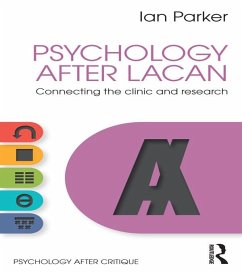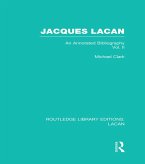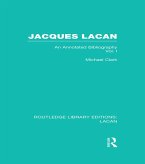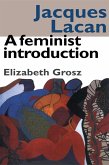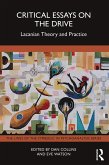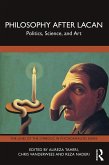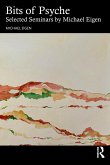Psychology after Lacan reviews the significance of Jacques Lacan's work for a new generation of psychologists, and explores the implications of Lacanian psychoanalysis for the discipline of psychology and some of its key assumptions. Written from a psychology perpsective, the accounts of different aspects of Lacan's work are designed to be accessible to those in the discipline looking for new ideas.
Dieser Download kann aus rechtlichen Gründen nur mit Rechnungsadresse in A, B, BG, CY, CZ, D, DK, EW, E, FIN, F, GR, HR, H, IRL, I, LT, L, LR, M, NL, PL, P, R, S, SLO, SK ausgeliefert werden.

